NSW path from lockdown will be a bumpy ‘experiment’
Just days after Gladys Berejiklian announced a “roadmap to freedom”, major cracks have appeared in her plan to ease rules.
Critics say NSW’s road to freedom from coronavirus restrictions will be bumpy and confusing, with a number of potential flaws in the plan.
Premier Gladys Berejiklian has unveiled her government’s highly anticipated roadmap out of lockdown, which will allow home visits and a reopening of hospitality and retail venues.
People who are fully vaccinated will be able to dine out at restaurants, drink beers at the pub, get their hair cut, train at the gym and visit friends and family.
Masks will remain mandatory indoors.
These and other new freedoms will kick in once the state achieves its double dose target for 70 per cent of people aged over 16, which is anticipated in mid-October.
Some large regional areas have already emerged from lockdown.
In Sydney and other parts of the state, millions of people who have spent months indoors will spend the next five to six weeks relishing the prospect of freedom.
But not everyone is happy about it.

The gravest warning came from the Australian Medical Association, who accused the Berejiklian government of cherrypicking expert advice.
“We already know it is beyond the capacity of the NSW health system to effectively trace contacts of many hundreds of cases a day,” AMA president Omar Khorshid said.
The AMA said an impending hospital crisis could deepen if the reopening plan was predicated on vaccination rates alone, ignoring soaring case numbers.
The doctors’ lobby group even warned the state would be at considerable risk of having to lock down again if restrictions were scrapped “too fast and too soon”.
NSW confirmed a record 1542 new infections on Friday, taking the total number of cases to 34,804 since the Delta outbreak began in June.
There have been 1156 Covid-19 cases admitted to hospital, with 207 people in intensive care, 89 of whom are on ventilators.
The state’s hospitals are bracing for a huge spike in ICU patients, which is likely to hit around the same time NSW reopens and could persist until December.
Modelling released earlier this month showed hospitalisations would peak around the end of October and put “overwhelming” pressure on intensive care.
Sydney’s healthcare workers have warned they are already under immense strain, with some hospitals forced to turn Covid-19 patients away because of a lack of beds.
Alan O’Riordan, assistant secretary of the Australian Paramedics Association NSW, said he had fears and reservations about an “abrupt” reopening.
“It’s not taking into account the potential bed crisis that will exist. We are going to have a shortage of ambulances on the roads,” he told NCA NewsWire.
“I am very fearful of what’s ahead. We’ll have a population that’s been cooped up for at least 16 weeks. They want to get out and see the outdoors again.
“It’s totally understandable but with that you have onset of trauma, other medical conditions, with Covid-19 sitting on top of it I’m not sure how our emergency departments and our hospitals are going to function.”
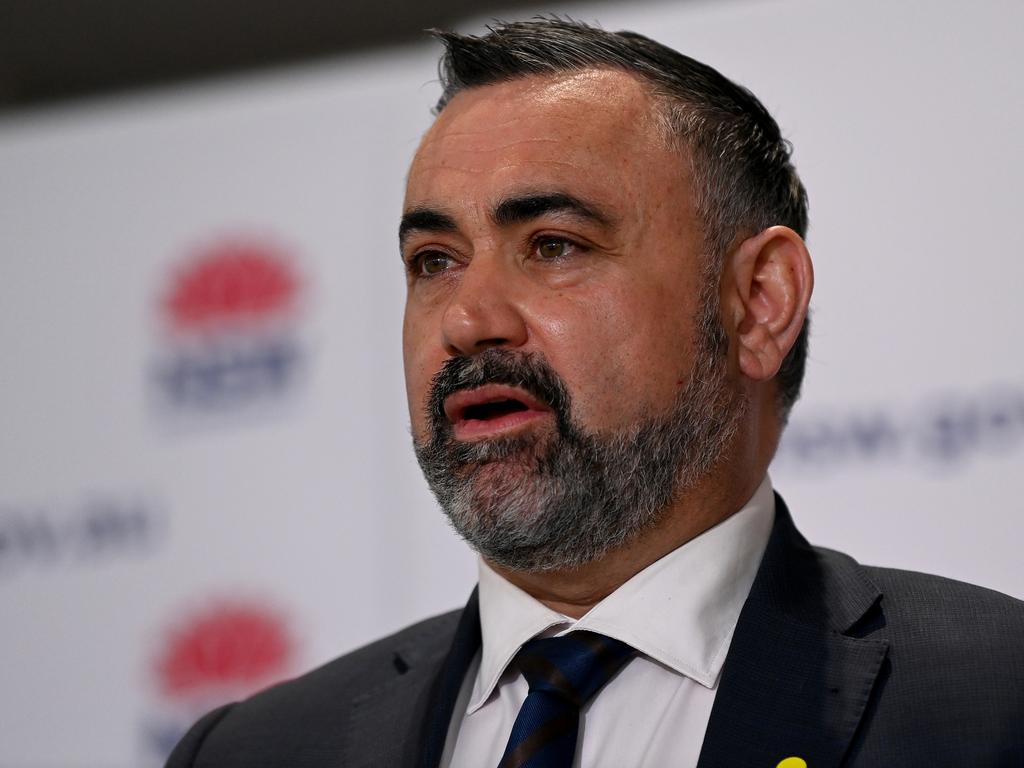
Deputy Premier John Barilaro, the self-described “architect” of the reopening plan, said the government expected case numbers to peak in the next fortnight.
“We’ll see case numbers come down well before we open,” he said.
“But there will still be case numbers and we’ve left in the roadmap the opportunity for health, if we believe that there are areas of concern, that we will still possibly put in place some suppression measures.”
Mr Barilaro said his roadmap had the support of NSW Health and of chief health officer Dr Kerry Chant and her team.
But the premier and other senior ministers reportedly overruled health officials, who advised the state should reopen when vaccination levels were closer to 85 per cent.
Ms Berejiklian has refuted the report and announced she will no longer hold her daily 11am press conferences from next week.
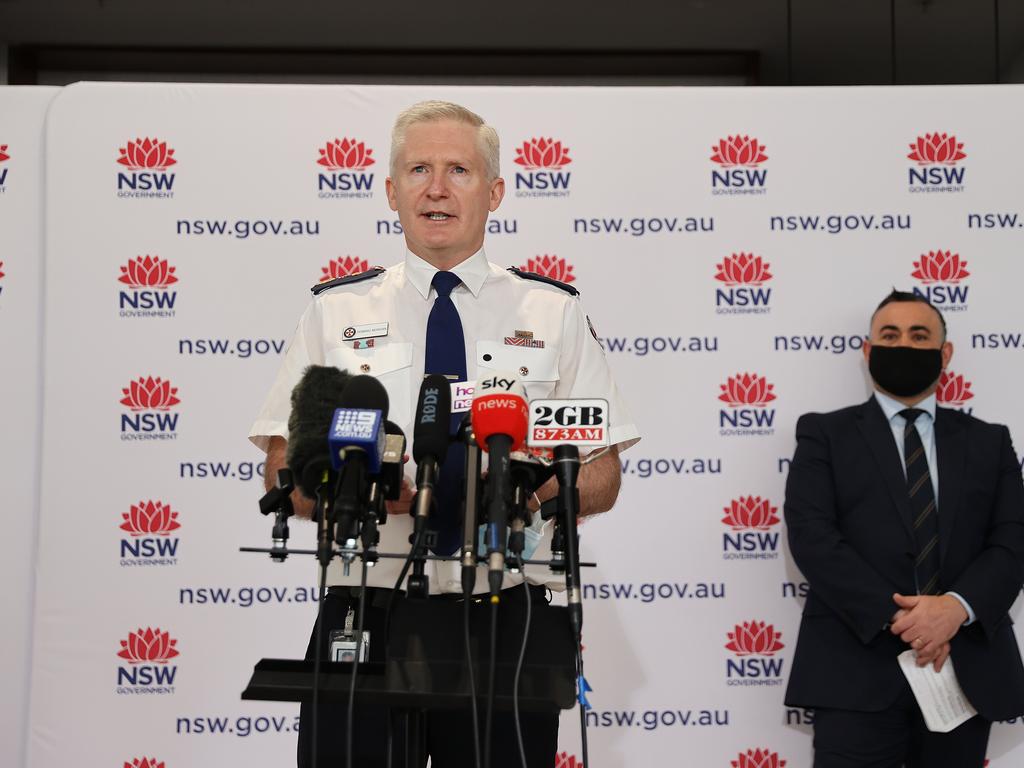
NSW Ambulance Commissioner Dominic Morgan said extra resources were being deployed to the regions to help smaller hospitals cope with potential outbreaks.
“The risk that they could be overwhelmed by comparatively smaller numbers of Covid-19 patients being really unwell is much higher,” he said.
When restrictions are eased next month, trips to regional NSW will be permitted again, meaning communities with no Covid-19 cases could face the virus for the first time.
The ongoing outbreak in western NSW has shone a spotlight on the state’s regional healthcare crisis, which is being examined by a parliamentary inquiry.
Hospitals in the central west that were already struggling with resourcing have had to fight Covid-19 with dozens of staff in isolation after being deemed close contacts.
NSW opposition health spokesman Ryan Park said the time was coming to ease restrictions but he was concerned about overstretched rural hospitals.
“It will put an enormous pressure on those if there are increased Covid-19 cases,” he told NCA NewsWire.
He said the government needed to ensure there were enough vaccines for rural NSW, with the state’s reopening based on a 70 per cent overall inoculation rate that could leave some communities vulnerable.
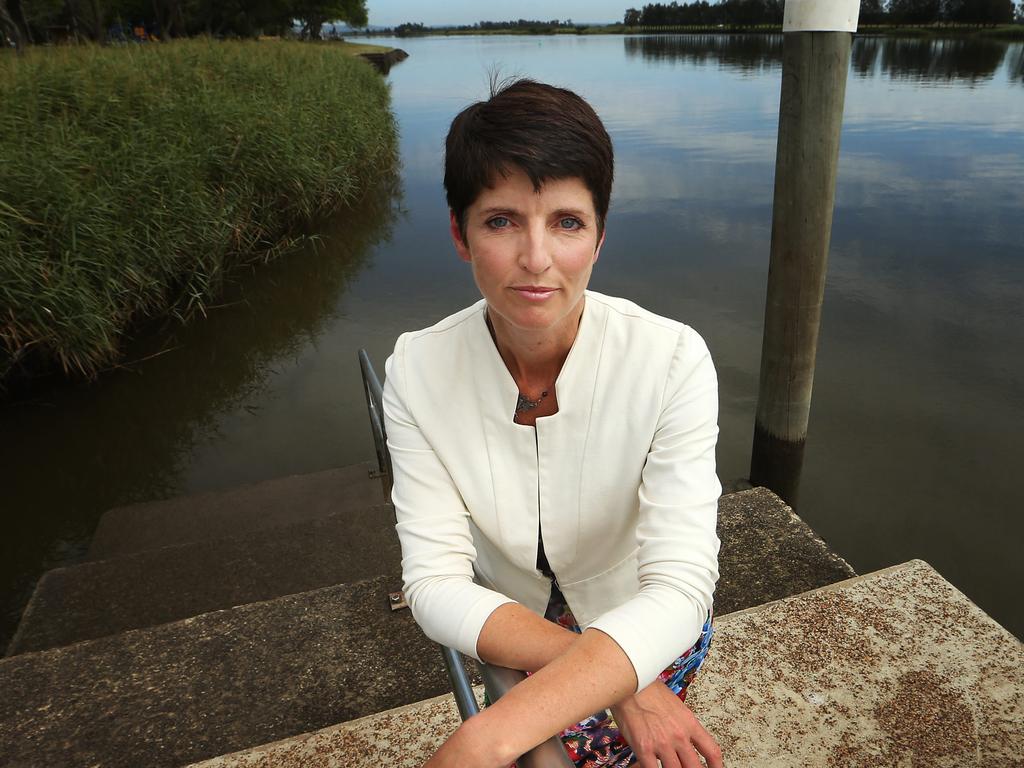
Port Stephens MP Kate Washington echoed similar concerns, saying many people in her electorate were struggling to book Pfizer vaccine appointments.
“In areas like mine we are going to see a tsunami of Sydneysiders come to our area,” she told NCA Newswire.
“You could have 100 per cent of the north shore with a double dose and areas in regional NSW sitting far lower than 70 per cent.”
Labor has also called for certainty around Sydney’s Covid-19 hot spot local government areas, whose residents have endured the toughest restrictions of anyone in the state.
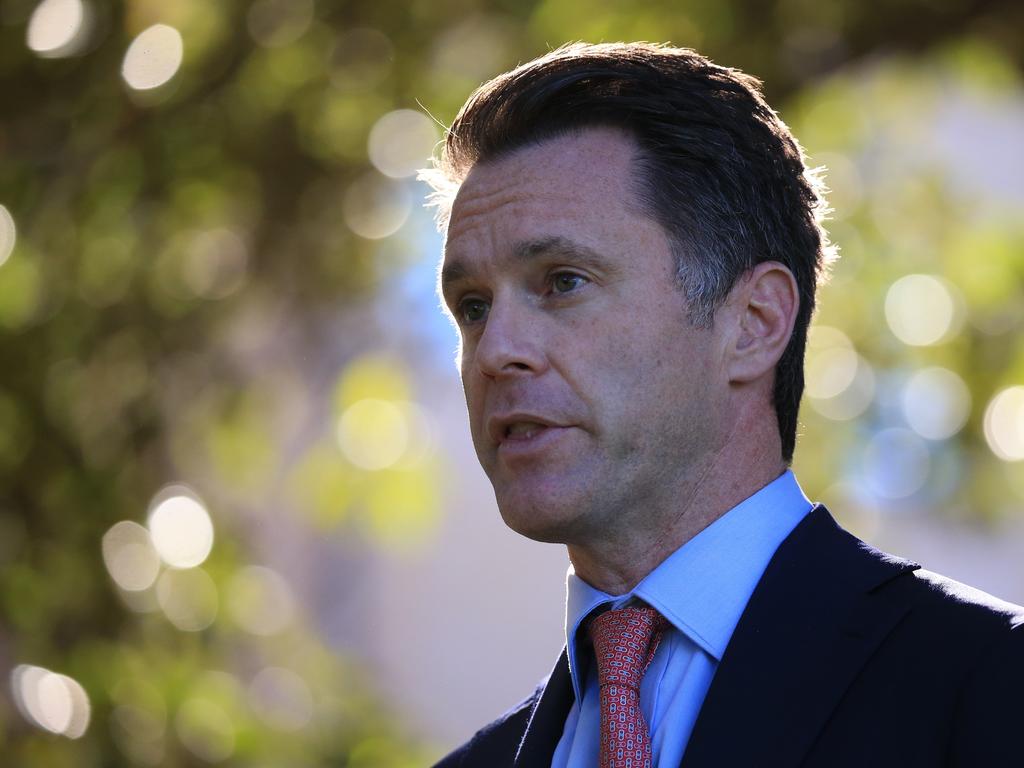
The Berejiklian government’s reopening plan comes with the caveat that areas with high numbers of cases could be subject to further restrictions.
The retail and hospitality sectors, meanwhile, face their own challenges.
In order to reopen, all staff and patrons must be fully vaccinated.
The policing of whether or not customers have had two jabs is likely to fall to businesses, with fears this will place an unfair burden on staff.
Customers are expected to use a “vaccine passport” through the Service NSW app when they check into a premises with a QR code.
The NSW government has promised a trial of the technology before it is rolled out across the state, but the details are yet to be revealed.
Australian Hotels Association NSW director John Green said the scheme needed to be seamless by the reopening date.
“There’s always teething problems when a new process gets rolled out and that’s why we’ve indicated that we’re supportive of any pilot or trial,” he told NCA NewsWire.
“Our staff and licensees are really looking forward to being able to get back open again. They’re champing at the bit. We’re very keen to get back on the tools.
“We just need people to understand that we’re operating under government conditions and be a bit patient with our staff.”
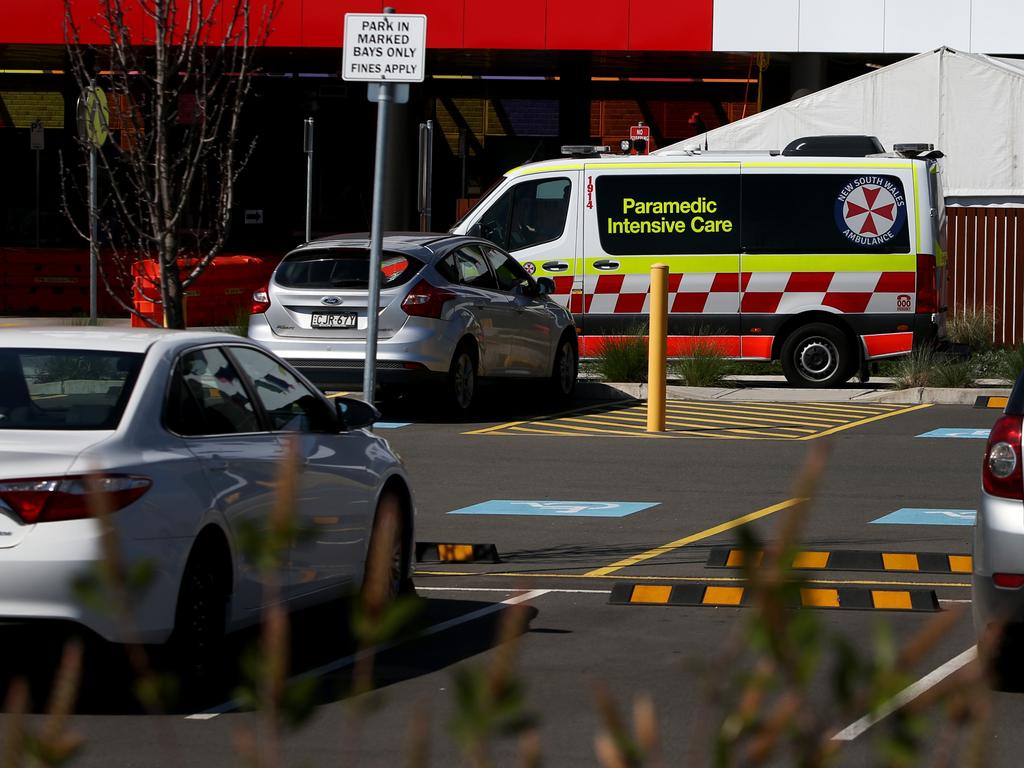
More than 42 per cent of NSW residents are now fully vaccinated, with the state on track to hit 80 per cent single doses on Monday.
University of Sydney epidemiologist Stephen Leeder said the reopening plan was a “brave move” and would be an experiment.
“It’s reasonable on the available evidence to try it as an experiment and be ready to change our course or do other things if the evidence suggests it’s not the right way to go,” he told NCA NewsWire.
“Right from the start with Covid-19 we’ve been in new territory. It’s a bit like landing on Mars.”
Professor Leeder, an emeritus professor of public health and community medicine, said the government would need to keep a close eye on the state’s hospitals.
“Sitting back and waiting until the whole thing blows up is not an option,” he said.
“We need a sophisticated view of what the demand on the health system will be, it’s not just a matter of beds and ventilators, fundamentally it’s a matter of staff.”
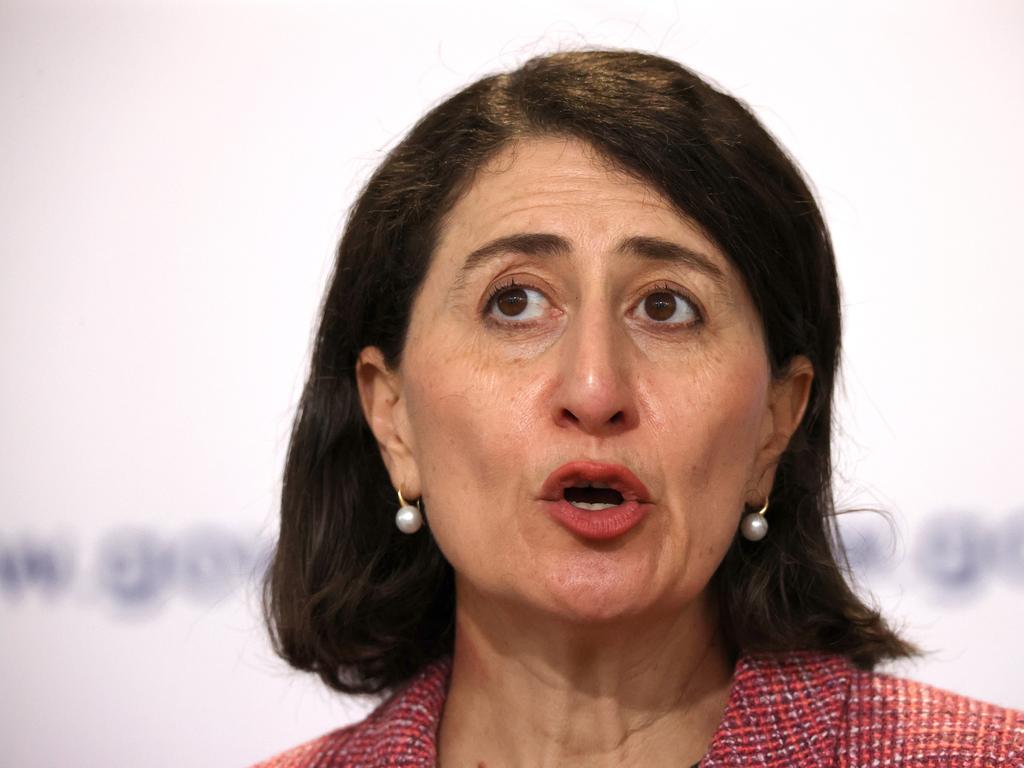
Other public health experts have raised concerns that the reopening plan appears to be focused on business interests rather than the healthcare system.
When the state hits the 80 per cent double dose target, the Berejiklian government intends to open up further freedoms around international travel, community sport, and major events.
The warnings come as Sydney prepares to enter its 12th week of lockdown.



